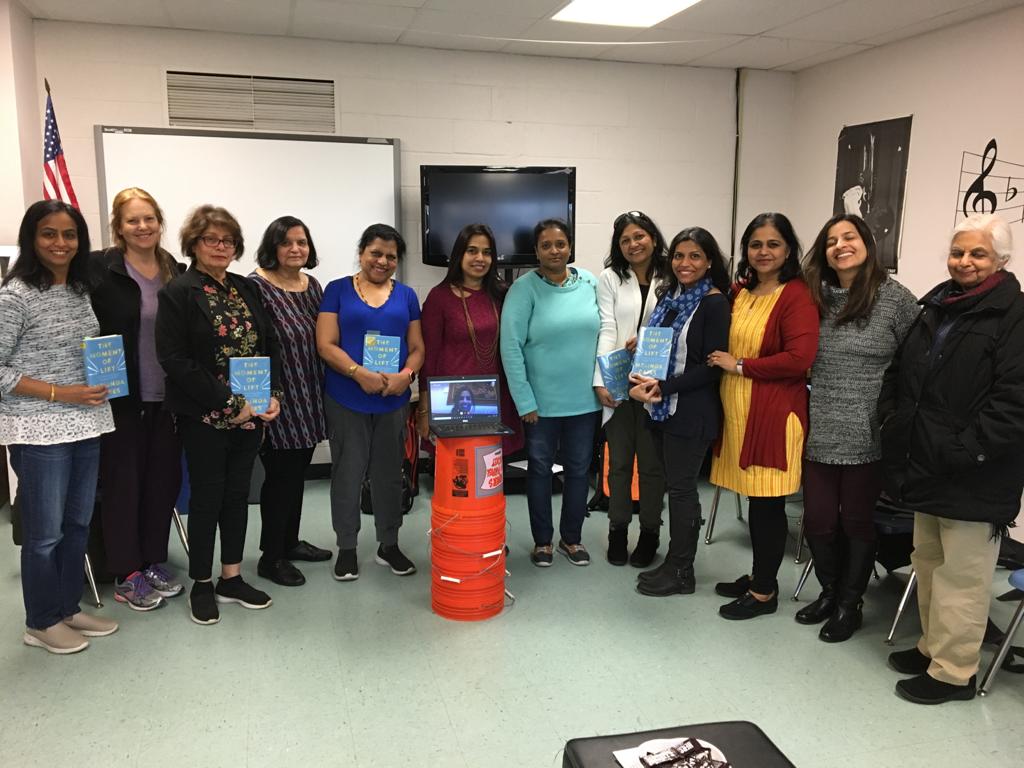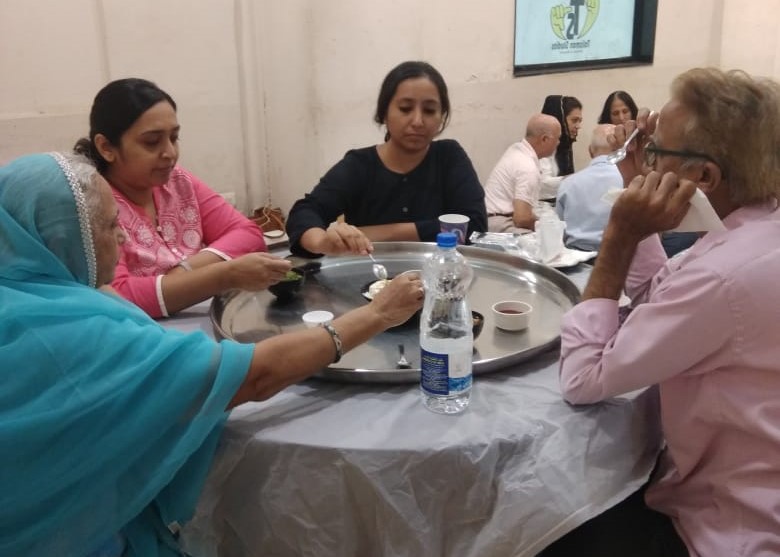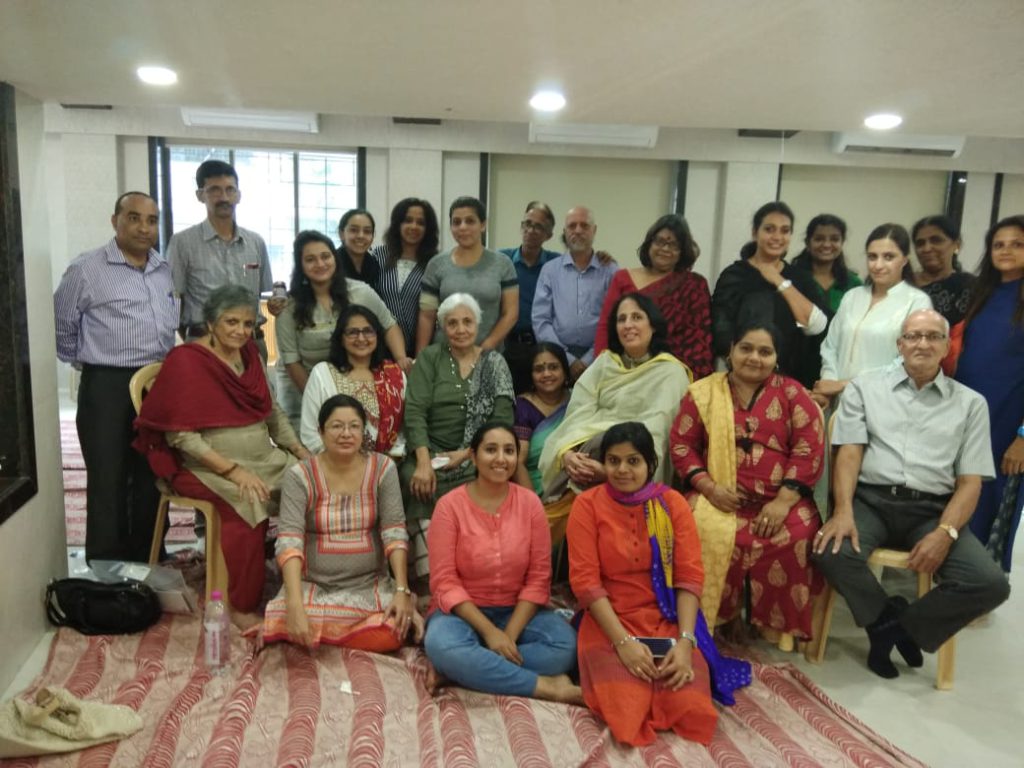How Melinda Gates’ Moment of Lift addresses female genital cutting

By Kristin Pepper In December 2019, our book club discussed Melinda Gates’ book, Moment of Lift, and experienced firsthand Melinda’s process ourselves. One of our members knew that the book mentioned female genital cutting (FGC), and asked Mariya Taher, an expert on FGC, to join our discussion using Skype. Just as Melinda looked into how to empower women and grew to understand women’s issues in a whole new way, our book club read a book about how women can help and learned many facets of a problem most of us barely knew existed. Mariya presented some facts to help us understand that FGC happens everywhere, including in the United States. We also had a member who knew that girls in our own town were being cut. Our book club is made up of mothers who live in an upper middle class, educated area in which all parents want the very best education for girls and boys alike. Most of our members had not realized girls, both Christian and Muslim living in the US, were being cut, much less in our own town. We were shocked and had an especially hard time understanding why a woman would be involved in cutting a girl. When discussing Moment of Lift, we kept coming back to why women perpetuate any customs that hurt other women. The story of girls tricked into child marriage made us angry at the mothers. Mariya showed us a video of a woman who used to hold down girls to be cut but later helped her community to reject FGC. Some of us had trouble forgiving that woman despite her courage and activism. We had followed Melinda Gates into discovering a problem happening in our area, as well as globally. We had to understand why FGC exists, how damaging it was to girls, and what we could do about it. Mariya helped us understand some of the social, medical and educational roots of the problem, as well as its true danger. She showed us videos of women describing the effect cutting had on their lives, but we also learned that not all women had problems from cutting. We learned the different methods of cutting. We tried to understand why educated women who clearly loved their children would have their girls cut. Mariya and the other book club member were invaluable in sharing their knowledge with us, just as the people who were closest to the problems were most valuable to Melinda. They helped us understand the loss a woman and her entire family faces if she speaks out against FGC in a community that accepts it. She and her family may no longer be valued members of the community. They may still go to their places of worship, but people may no longer talk to them, and they may no longer be invited to community gatherings. The ostracism and loss of support they have felt their whole lives is an extreme deterrent. This tied into Melinda’s journey of speaking out in support of birth control, despite being Catholic. She felt she had to publicly support family planning in order to have any impact on communities. It took courage to talk out against something her faith supported, and she was worried about wading into politically charged waters. We spoke about what the Gates Foundation did in one community to stop cutting, but to the members who understood FGC best, it was complicated. There might be a lesson in the MeToo movement. For years, women kept quiet about workplace sexual harassment, but then the MeToo movement supported speaking up and the society began to stop blaming the victims. It was very important that the women who spoke up were believed, welcomed and told they were brave. We need to support those who do speak up about FGC. Those brave women could break the notion that FGC does not hurt women’s health, and they could inspire their friends to speak out. Women who have been cut speaking up and denouncing the practice would have a powerful effect on their own communities, but they will need to be supported by people who understand what a loss they face when they raise their voices. Melinda Gates’ positive message that change is possible when women are given the right support to lift was a hopeful message that made a strong impression on our book club.
Taking the anti-FGC movement forward, with Thaal Pe Charcha participants

On 17th November 2018, Sahiyo hosted its seventh Thaal Pe Charcha (loosely translated as “discussions over food”) in Mumbai, India, with a diverse group of 17 participants. TPC is a flagship Sahiyo program where Bohra women are brought together in a private, informal setting to bond over food and discuss issues that affect their lives, particularly Female Genital Cutting or Khatna. For the November event, two participants travelled specially from Pune and Kerala respectively. During this TPC, participants were divided into two groups that drew up plans for taking the movement against FGC forward through two different approaches. One group discussed engagement with lawmakers, medical professionals and other social stakeholders, as well as raising social awareness about FGC through animation videos and other such media. The second group discussed taking Thaal Pe Charcha itself forward, by reaching out to more and more members of the community and bringing in new participants along with them for the next TPC. They also discussed plans to reach out to Bohras in rural areas and organising their own TPC events with their friends and relatives. The groups formed separate Whatsapp groups to stay in touch and monitor the progress of their activities.
When Thaal Pe Charcha participants met Mumbai’s Veteran Activists

On 4th August 2018, Sahiyo hosted its sixth Thaal Pe Charcha (loosely translated as “discussions over food”) in Mumbai, India. TPC is a flagship Sahiyo program where Bohra women are brought together in a private, informal setting to bond over food and discuss issues that affect their lives, particularly Female Genital Cutting or Khatna. The TPC in August was unique because in addition to several regular and new participants from the Bohra community (five of whom were men), the event also featured women leaders and activists from various non-profit organizations working on women’s rights. They were invited to interact with participants and share their experiences, struggles and the knowledge gained in their journeys as women’s rights advocates. One of the activists was Flavia Agnes, a veteran feminist lawyer from Majlis, who was at the forefront of India’s women’s movement in the 1980s. Agnes shared her story of surviving domestic violence and going on to become a prominent lawyer helping other women with legal support in their fight for justice. Other guest speakers included Noorjehan Safia Niaz, the co-founder of the Bharatiya Muslim Mahila Andolan (BMMA), a prominent Muslim women’s organisation, and her team of two women Qazis (Islamic jurists) from BMMA. The three of them spoke about their struggle to get the practice of unilateral instantaneous divorce or triple talaq to be recognised as unconstitutional in India, as well as their efforts to bring justice to Muslim women by training women to become Qazis — a profession only open to men within traditional Islam. Dr. Sheroo Zamindar, a gynaecologist from Ahmedabad, also explained the medical consequences of undergoing Khatna. Participants of the TPC were enthusiastic in their interactions with the guest speakers and in their feedback to Sahiyo, mentioned that they appreciated the diverse perspectives that they offered during the event.
‘I have convinced my friends to refrain from Female Genital Cutting’

On January 27, 2018, Sahiyo hosted its fourth Thaal Pe Charcha (loosely translated as “discussions over food”) in Mumbai, India, with a diverse group of 18 participants. TPC is a flagship Sahiyo program where Bohra women are brought together in a private, informal setting to bond over food and discuss issues that affect their lives, particularly Female Genital Cutting or Khatna. The participants, six of whom were men, discussed ongoing developments around the movement to end khatna. Men were invited to share their own experiences of male circumcision as well as comment on the Khatna experience of young girls in the community or within their families. The participants were eager to be proactive in raising awareness about the harmful effects of Khatna on girls. One male participant shared that he convinced his mother and wife not to cut their seven-year old daughter by explaining the possible damage it could do to a child’s body and mind. He said, “I have also convinced my friends and their wives to refrain from doing this practice. There is just no need for it.” Towards the end of the event, Sahiyo organized a special healing session for the women participants, conducted by a well-known alternate healing therapist who specializes in reconnective healing therapy. The therapist, Shabnam Contractor, is a member of the Bohra community and was able to understand how FGC might have affected the women participants. In the hour-long session, she helped participants explore aspects of their lives that may have been affected by undergoing FGC. After the session, most women experienced a sense of relief and expressed an interest in more such sessions in subsequent events.
